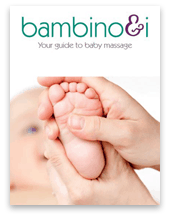
It’s obvious that a good night’s sleep is good for all of us. Even as adults, if we have a bad night, we feel groggy, grumpy and generally a bit rubbish. And the same is true for children – a restless night equals moods, tantrums and random bouts of hunger. But what’s the science behind all this?
According to the National Sleep Foundation, “Sleep is especially important for children as it directly impacts mental and physical development.” A child spends around 40% of their time asleep, so it’s important they sleep well.
Sleep is our body’s time to repair itself. During NREM (Non-Rapid Eye Movement) states of sleep, blood is pumped to the muscles to restore energy, boost and repair tissue growth and encourage growth and development hormones. Basically, our bodies recharge.
A lack of sleep can impact upon a child’s health. Research by paediatrics found on parent advisory site Parents.com, suggests that sleep enables the body to rid itself of disease-causing toxins. And a child who is active or restless during the night may produce more stress hormones and increase blood glucose and cortisol, which is linked to diabetes, obesity and heart disease.
We all know that children and grown-ups alike tend to sleep more when they feel poorly, and this is because when we sleep our body produces proteins known as cytokines, which the body relies on to fight infection, illness, and stress. These proteins also make us feel drowsy, and this too forces us to rest so our bodies can recover. Who knew our bodies were so clever?
Another state of sleep is REM, or the sleep that lets us dream. REM allows us to process and make sense of our emotions and memories, and is essential for learning, stimulating the brain and developing new skills. So it is no surprise that sleep helps our ability to learn. Various experiments have been carried out that show that learning and memory is more efficient after a child has had plenty of sleep. Certainly something to remember for school tests when they’re older!
Research has shown that sleep can also affect a child’s attention limits. If they have had less than ten hours sleep a night for the first three years of their life, they are three times more likely to have hyperactivity and impulsivity problems by six years old.
Don’t panic just yet though! According to the National Sleep Foundation, the amount of sleep your child actually needs varies and also decreases as they get older.
Here are our top tips to help babies sleep well at night.
Routine
A regular bedtime routine is the best way to ensure little ones have a good night’s sleep. It’s difficult to maintain a routine when there is so much going on in our lives, but babies and young tots (and even older siblings) need about twenty minutes of wind-down pre-bed. Activities such as a warm bath, a massage, a feed, a bedtime story, a cuddle, and turning down the lights, will all promote sleep and will bring on the sleep-inducing hormone, melatonin. A predictable routine every night will eventually signal to your baby that it’s time for bed.
A bedtime story
We’re huge believers in a bedtime story. Nothing beats cuddling up with your children to read a book and they’re certainly never too young. As long as it’s nothing too exciting or stimulating, your baby will love listening to your voice. Choose a board book or fabric book and baby will be able to play with it during the day too.
A Massage
Research shows that infants who are massaged by their parents before bed tend to fall asleep faster, sleep more deeply, and stay asleep longer. After their bath is a great time to give baby a massage. Make sure the room is nice and warm, dim the lights and put some relaxing music. When babies are overtired, they may find a massage over-stimulating, so remember to always listen to their cues.
No electricals
According to research, the light from a television screen can disrupt the production of melatonin, which is the hormone that makes us all sleepy. So avoid putting baby in front of the TV, or any other device such as an iPad, as this can affect their sleep for several hours. Remember to dim the light in their bedroom or use a lamp when reading their bedtime story too.
No lively activities
We know this is tricky when baby is so cute and all you want to do is play ‘peek-a-boo’ and tickle their tummy, especially when their giggles are so infectious. But anything just before bed that increases your child’s level of cortisol, the stress hormone, will have a detrimental effect on their ability to get to sleep. This is particularly hard for working mums and dads who see baby for that short period of time between returning home from work and putting baby to bed, but keep the lively activities to day time only!
Set the scene
A relaxing bedroom that is tidy, peaceful, cosy and between 18-24°C is perfect. Particularly when your child first moves into their own room, or moves from crib to cot, they need to feel secure. While there shouldn’t be anything too stimulating in their bedroom, a few cuddly teddies, and friendly pictures on the walls, will put them at ease. Remember not to put too many items in the cot with them, which may cause a safety hazard.
Remember how much sleep they need
If your child won’t go to sleep when you put them down at 7pm, perhaps they just don’t need that much sleep. A newborn baby needs about seventeen hours of sleep, but half of this will be during the day. By six months, baby will sleep about ten hours at night (with a daytime nap), at 18 months, this will be around eleven hours, and by 2 years old, they will only need about eleven and a half hours’ sleep, with one short day time nap. However, this is an average, and all babies will be different. Remember illness, teething, and a variety of other reasons will also affect baby’s sleep pattern.
Night time waking
If baby wakes in the night, remember to keep things as quiet and boring as possible. Try to keep lights dimmed, conversation to a minimum and encourage your child to go back to sleep as quickly as possible. If you talk to your baby during feeding in the daytime, try to give a silent feed at night, so they will start to associate night time feeds with quiet time.
A wake up routine
Waking your child up at the same time every morning is a good idea. Like adults, long lie-ins can affect their sleep patterns in a similar way to jetlag. You may be tempted to let them sleep after a restless night, but you may be creating a vicious cycle.

Photo by Minnie Zhou on Unsplash





